WoW Woman in FemTech I Dearbhail Ormond, founder of Frendo
Dearbhail Ormond is the founder of Frendo - a smartphone app designed to empower endometriosis patients and those suffering with suspected symptoms through advice, support and community.
Despite experiencing symptoms and several misdiagnoses since young adulthood, it took medical professionals around the globe over 18 years to provide Dearbhail with an endometriosis diagnosis that would explain the severe pain, erratic sickness, and issues she faced, impacting various parts of her life significantly. As a result, she created Frendo as a means to help reduce the diagnosis delay for the 1 in 9 people with periods who will experience the disease in their lifetime, and to create a community for those to share their experiences and seek support from one another, reducing the isolation that so many feel.
Dearbhail’s hopes for Frendo are to implement endometriosis screening in schools and third-level colleges and universities, reducing the stigma and raising awareness of the disease in order to break the cycle early, improving the time to diagnosis and as a result preventing the progression rate of the disease.
Dearbhail, tell us a bit about your background and your projects so far
My professional background started in events - from managing Facebook HQ events in Dublin through to large-scale events, such as the UEFA Europa League Final. I then moved to Australia to work for the Australian Olympic Committee as Commercial Manager and from there, took a role as Head of Marketing for a cancer MedTech. I was inspired by what they were doing for cancer patients and that's where the Tech bug got hold of me! Following CancerAid, I then moved onto KPMG Startup practice as Head of Marketing to work on the other side, supporting startups’ growth and new market entry.
I’ve always felt very driven throughout my career, however, I think I was always conscious that there was something of my own ahead that would take my passion and drive to a deeper level.
When the concept of Frendo came to me - an app that could support girls, women and people with periods access a community of support, screening and tracking to help make informed decisions about endometriosis - I knew this was it. Two years later and we’ve just completed our first funding round, have an engaged community of users on the app and are about to launch our first premium feature.
How did you get into this industry? Has it been an easy industry to get into or have you had many challenges?
Following my last surgery for endometriosis treatment, I decided something had to be done to help the 1 in 9 of us suffering from this disease; to help us feel less isolated and tackle the challenge that is the diagnosis delay of on average 7-11 years. Having experienced my own 18-year diagnosis delay and living with the chronic illness, I knew I wanted to create the solution I always wished I had throughout those years and to help me manage the illness ongoing.
When I started talking about Frendo a year or two ago, the response was certainly different from how it is now. I had a lot of “endometriosis? - what’s that?” and I think many dismissed it, considering it to be just period issues. Endometriosis is now considered by many medical professionals to be a whole-body disease, as opposed to a reproductive condition. It can impact every part of your body, physically and mentally, for a very large part of people’s lives. The response has changed somewhat and many now realise that to truly address disease as prevalent as endometriosis, a strategic alliance between government, patients, physicians, legislators, support organisations and digital tools is essential if progress for millions of women and girls with endometriosis across the world is to become a reality. Many of these stakeholders now see it as a critical area where research and innovation are a necessity, giving us more credibility and a stronger platform.
Funding was a challenge to an extent, however, I have always been very clear, with a strong view on the strategic partners I want in order to drive Frendo to where it should be.
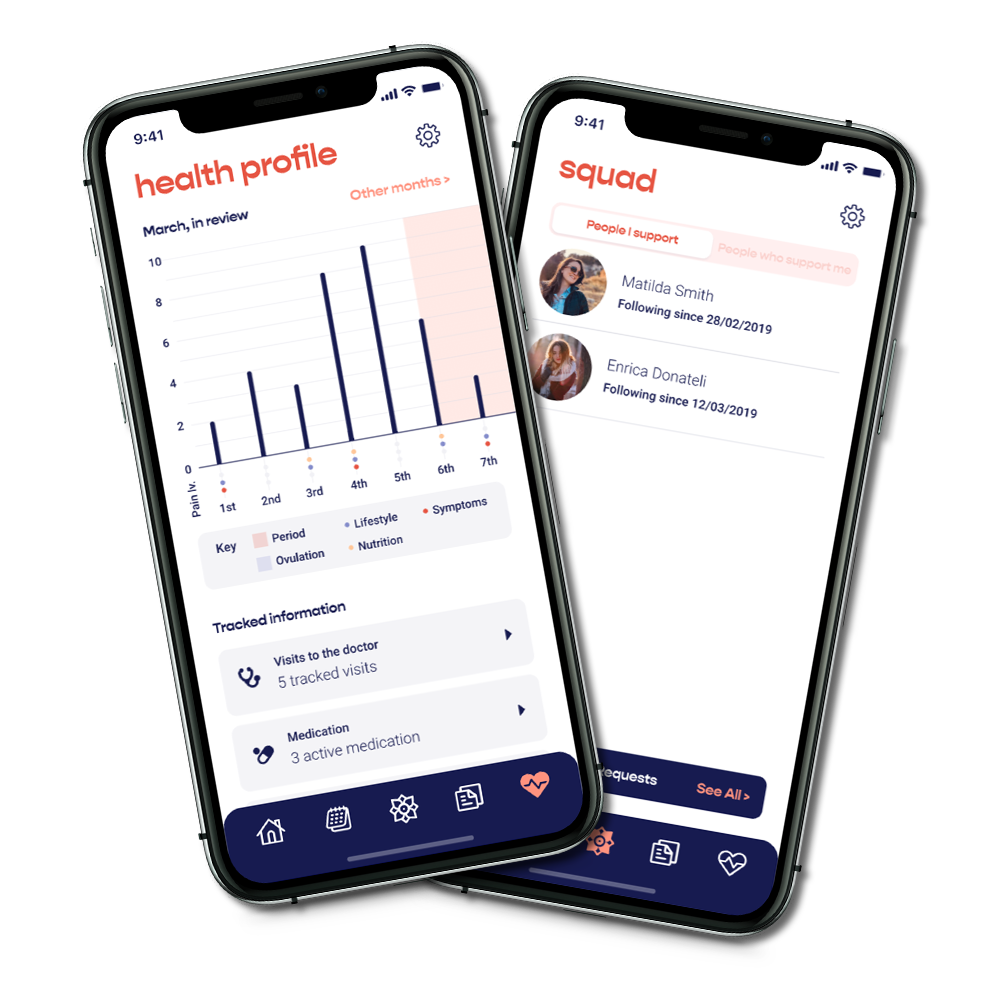
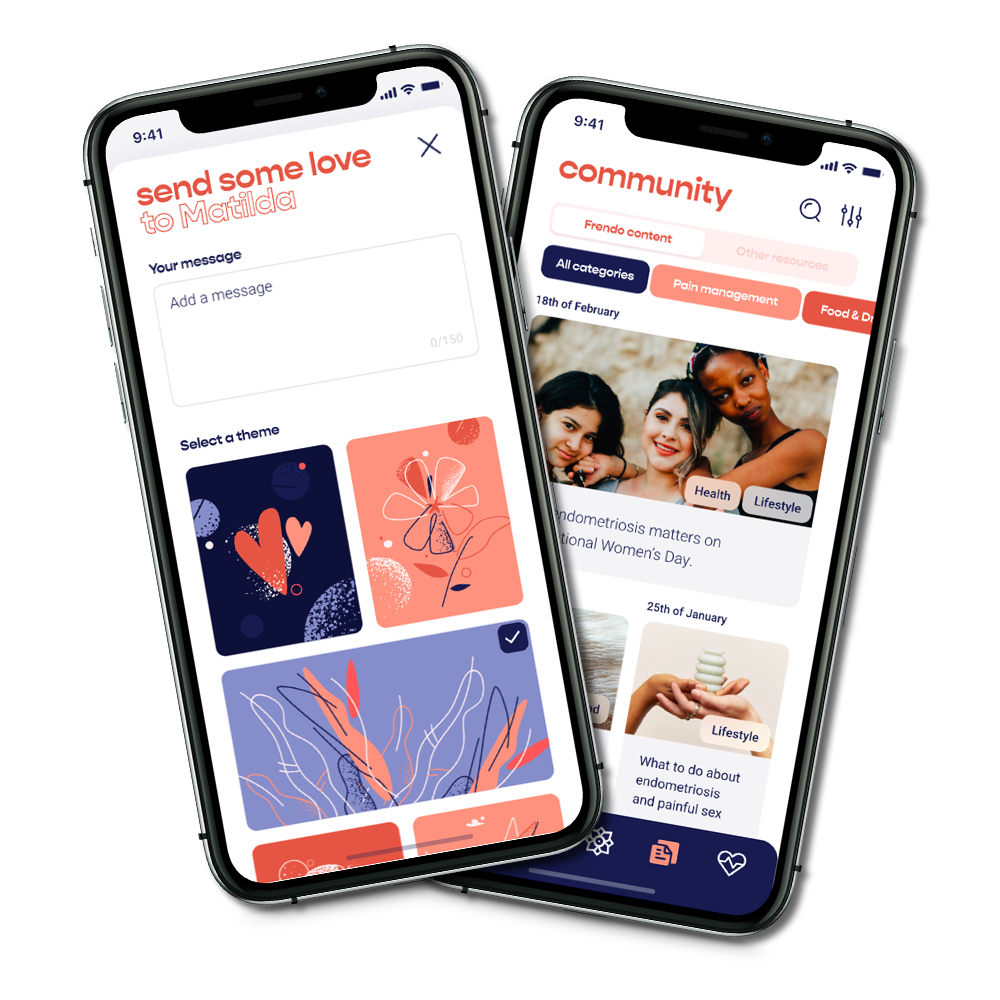
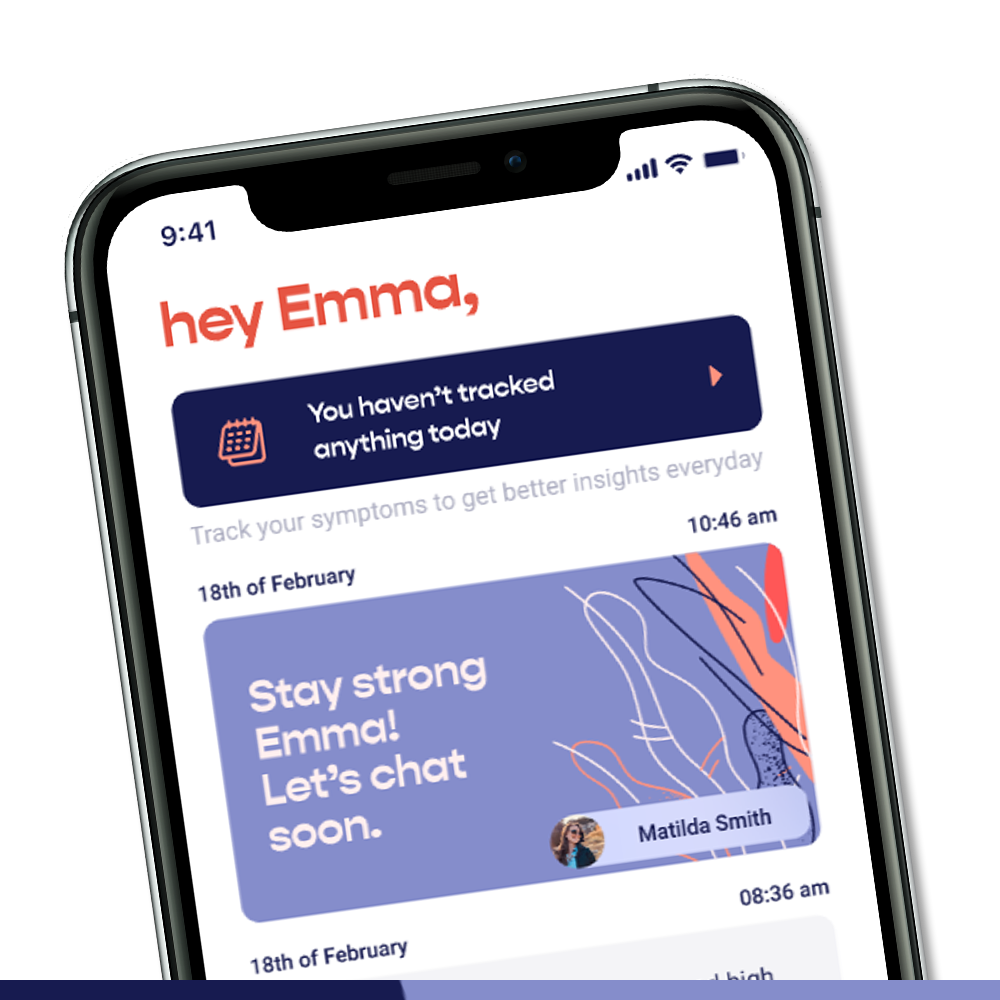
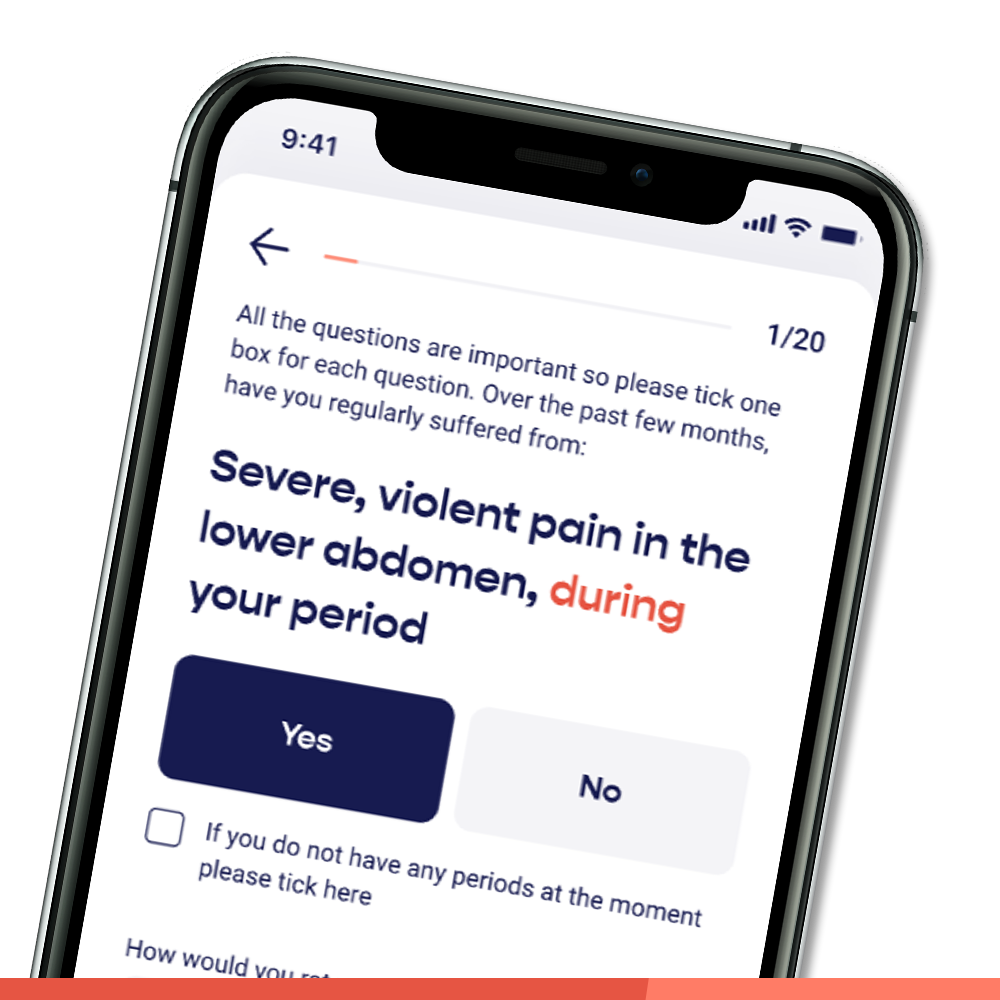
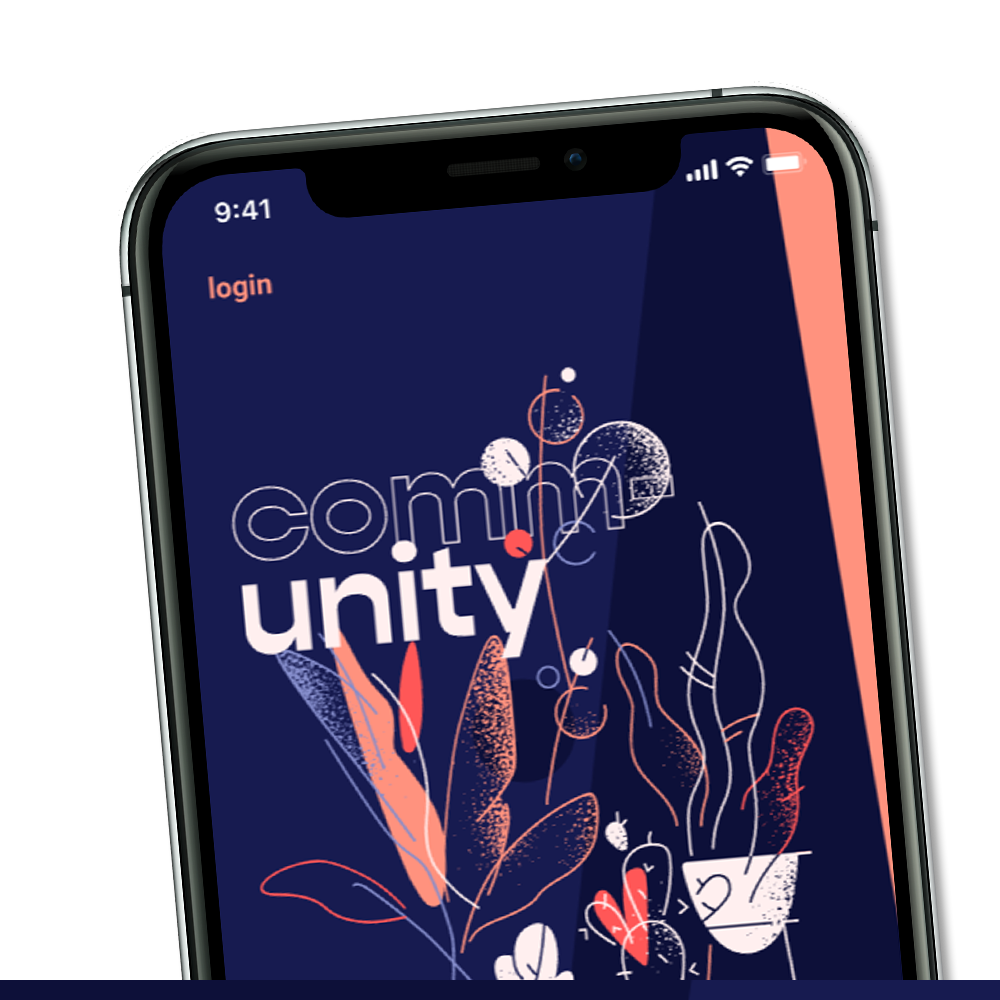
How long did it take you to be where you are now? What was the biggest obstacle? What are the challenges of being in the industry you are in?
Frendo was born in 2020 - but just as we were about to launch, the pandemic hit. Initially, I was disappointed with the delay but this actually allowed for invaluable thinking and development time which has ultimately shaped Frendo into something far better. It allowed me the time and space to think through our solution and grow and develop it further.
By speaking with our community about the further isolation they felt as a result of delayed diagnostic laparoscopies and canceled specialist appointments - plus the added distress with the lack of knowledge of when their delayed treatment appointments would eventually happen - we ultimately heard that people were longing for that peer-to-peer connection of a community now more than ever.
Users also needed the means to be able to track and manage their disease themselves as much as possible. As a result, we developed the tracker and insights features further, the components that allow the user to diarise their symptoms and push back helpful reminders and information to aid their illness on an ongoing basis. If anything, the pandemic gave us the time to delve into the features that are most important to sufferers.
I have found development a challenge along the way. I very much wanted a female developer, or certainly as part of the lead team, however that proved very difficult to come by. As a result, I found dealing with male-led/dominated dev teams a struggle, as they took longer to interpret the key missions for Frendo and what the user requirements or user journey should look like.
What are your biggest achievements to date?
Organic growth - users are with us because they want to be not because it’s been forced on them!
Credibility from key industry stakeholders - we have gynaecologists, psychologists, and industry bodies backing and supporting Frendo.
Funding - I’m very happy with the strategic investors we have so far and the support they offer.
What are the projects you are currently working on?
I’m so excited to soon be launching Frendo’s ‘Squad’ feature. I always felt that explaining what endometriosis is/what symptoms I have/why I need to rest etc. was such an added burden on an already exhausting illness. That’s why I created a feature in Frendo that allows users to nominate a ‘Squad’ of up to five people of their choice; their friends, partners, clinicians, or family members, to have access to certain parts of the app in order for them to share their endometriosis journey. For example, a mother or boyfriend could see when their daughter or girlfriend is experiencing a flare-up and gain insight into how this feels (both physically and mentally) and even allow them to ‘share love’ via in-app notifications. We anticipate that this consumer-targeted feature will attract a broader user base than just the patient.
Although we’ve done our own research into the effects of endo on patients and what tools would be useful in managing their illness, we’re now going to a wider audience where we will be conducting our own research into the understanding and impact of endometriosis in the general population. We will be revealing our findings throughout Endometriosis Awareness Month, however, this data will also feed into our roadmap for future feature updates, continuously working towards our goal of raising awareness and making changes for endo patients and those with suspected symptoms.
Is the #WomenInTech movement important to you and if yes, why?
Women have historically been underrepresented in so many areas, the tech being one of them, health research to name just one other! The #WomenInTech movement provides greater awareness of that fact and with that, there is a greater focus on changing this status quo now than ever before.
What will be the key trends in your industry in the next five years and where do you see them heading?
We know women are the main drivers behind healthcare decisions and they are taking their health into their own hands, now more than ever. Women are 75% more likely to use digital tools for healthcare than their male counterparts and working-age women spend 30% more per capita on healthcare compared to men in the same age group.
As a result, I am certain we will continue to see the development of digital health tools to support almost all areas that affect more than half of the population.
What is the most important piece of advice you could give to anyone who wants to start a career in this industry?
Go for it - chances are that if you are experiencing a problem and think you have a solution to it, then other people are likely searching for the same thing. I definitely feel my own personal experience has given me a solid foundation for developing a solution for others in a similar situation.
It won't be perfect, but it may never be! Test, test, then test again…then hit that ‘Go’ button!
Don't do it alone, you don't have to. I am a solo founder and at times, really wish I had a co-founder to battle the high seas with. But I soon realised it doesn’t need to be a co-founder who’s there to bounce ideas/challenges off of. Find your tribe and be open with them when you need some guidance. Early on, I found an amazing small group of women in tech in Dublin, and to this day I can reach out to them with questions (as silly as they may seem to me!) and they cheer Frendo on when we may need it most.
Experience and exposure help. My experience at a MedTech startup and at KPMG Startups practice certainly gave me insight into the challenges faced by startups and opened my eyes to the tech world.
Find out more about Frendo on their website.
Follow Frendo on LinkedIn, and Facebook.
Connect with Dearbhail on LinkedIn.
This interview was conducted by Anja Streicher, Chief Marketing Officer at Women of Wearables. Anja is passionate about improving women’s health and wellness, supporting women in business, education and children’s literature.


